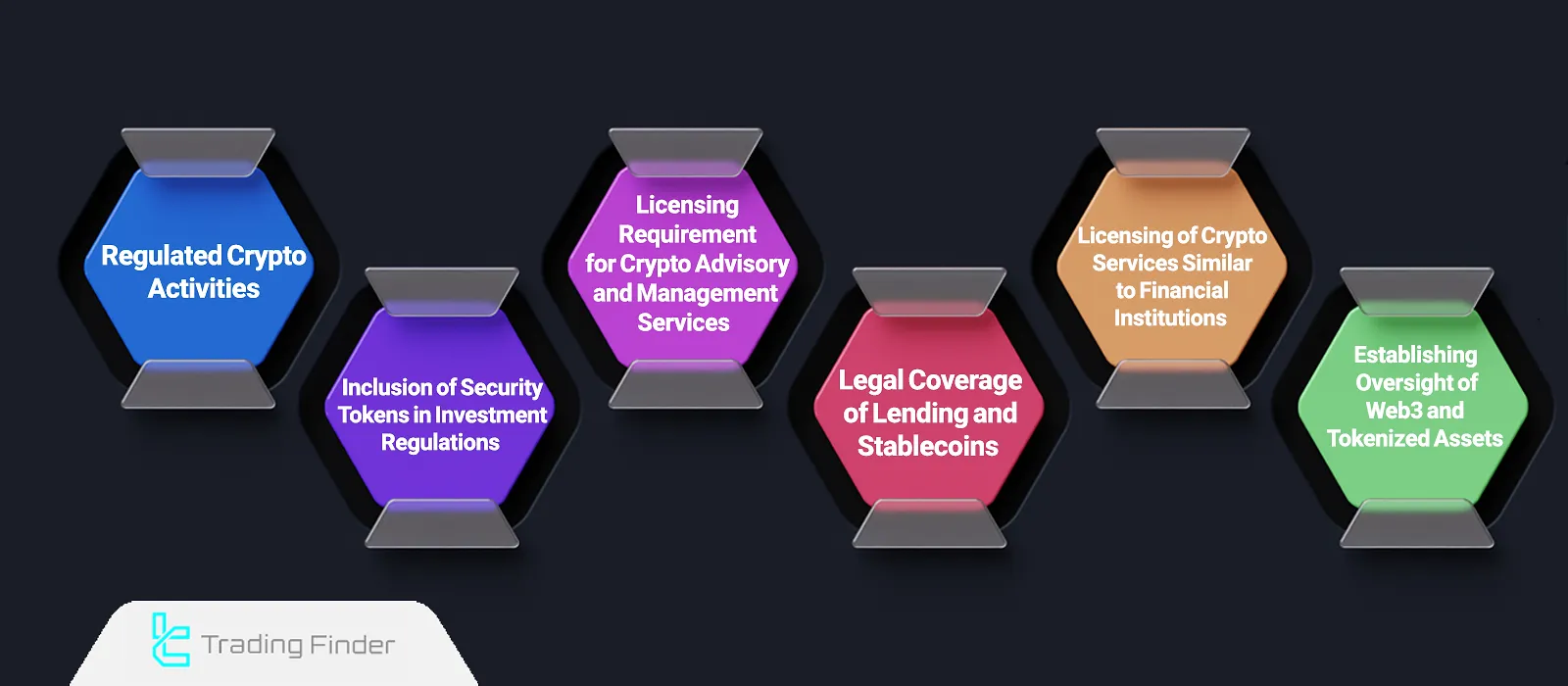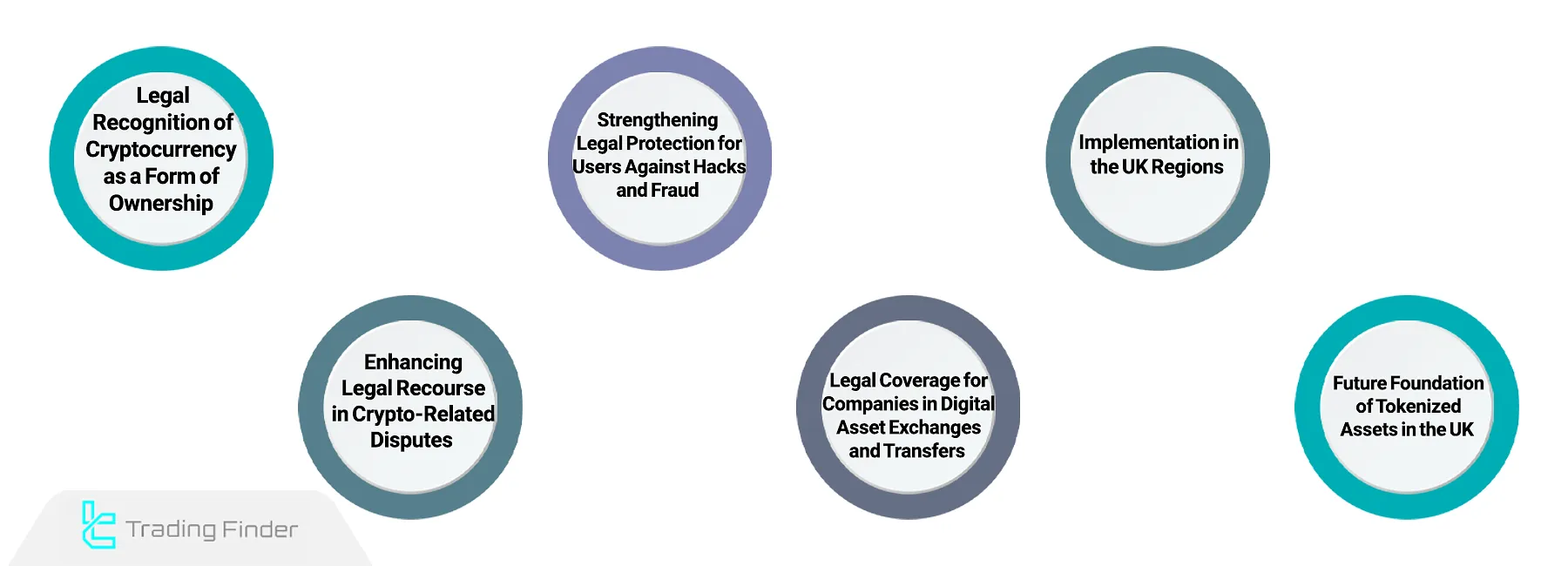With the growth of the cryptocurrency market, the UK, as one of the leaders in blockchain innovation, strives to create regulations supporting innovation and ensuring users’ economic security.
In recent years, institutions like the HM Treasury and the Financial Conduct Authority (FCA) have established clear standards for digital asset service providers.
These standards, framed in bills such as the Property Bill, provide a regulatory framework for crypto trading to combat money laundering (AML) and counter-terrorism financing (CFT).

The Importance of Crypto Trading Regulations in the UK
Due to the high volume of cryptocurrency investment and public acceptance within the UK, the country's crypto regulations have international significance.
Regulatory bodies such as HM Treasury and the FCA aim to create a transparent environment in the FinTech sector through clear standards and frameworks.
Alignment with international standards, particularly the FATF's recommendations regarding AML and CFT, further highlights the importance of crypto trading regulations in the UK.
What is the FCA? The FCA’s Role in Financial Behavior Regulation
The Financial Conduct Authority (FCA) is an independent regulatory entity in the UK, operating since 2013 under the supervision of the HM Treasury and independent from the Bank of England.
The FCA’s mission is to regulate and oversee the financial behavior of companies to protect consumers and maintain market integrity.
The FCA is responsible for registering and supervising Crypto Asset Service Providers (CASPs) in digital assets.
Under the Money Laundering Regulations 2017 (MLR 2017), crypto service providers must adhere to standards such as appointing a Money Laundering Reporting Officer (MLRO), performing user verification (KYC), and monitoring financial activities.
Key Crypto Trading Regulations in the UK
Each law covers a specific area of crypto activities, including user identity verification, crypto service advertising, and digital ownership definitions.
Law | Related to | Scope of Application |
MLR 2017 | All crypto companies | AML/KYC registration with FCA |
FSMA 2023 | Security Tokens | Regulated financial activities |
RAO 2001 | Stablecoins, derivatives, lending | Definition of regulated activities |
EMRs / PSRs | Wallets and exchange platforms | Payment services/funds custody |
Financial Promotions | All service providers to UK users | Crypto marketing and promotions |
Property Bill | Digital asset users and companies | Legal ownership of cryptocurrencies |
Money Laundering Regulations 2017 (MLR 2017)
The MLR 2017 is the UK's primary legal framework to combat money laundering, terrorist financing, and illicit activities in financial markets.
Since 2020, CASPs have been obligated to comply with this law.
The law’s requirements include:
- Mandatory registration with the FCA;
- Appointment of a Money Laundering Reporting Officer (MLRO);
- Conducting Know Your Customer (KYC) procedures;
- Organizational risk assessment;
- Continuous transaction monitoring;
- Sanctions list and Politically Exposed Persons (PEP) checks;
- Retention of identity and transaction records for at least five years after termination of service;
- Reporting of suspicious activities;
- Mandatory staff training on AML and CFT obligations.
Financial Services and Markets Act (FSMA)
Initially designed for traditional markets in 2000, the Financial Services and Markets Act (FSMA) was updated in 2023 to address crypto activities.

Regulated Activities Order 2001 (RAO 2001)
The Regulated Activities Order (RAO - 2001), an annex to the FSMA, details specific financial activities that must be regulated.
Recent updates have expanded its scope to cover crypto-related services.
Highlights regarding crypto companies include:
- Clear definition of regulated activities;
- Coverage of crypto-to-fiat and fiat-to-crypto exchange services;
- Inclusion of backed stablecoins;
- Coverage of crypto derivatives;
- Regulation of crypto lending and borrowing platforms;
- Requirement to obtain FCA authorization.
Property Bill
Introduced to the UK Parliament in 2024 and currently under review by the House of Lords, the Property Bill aims to legally classify digital assets, including cryptocurrencies, as personal property under English and Welsh law.
The UK would be among the countries officially recognizing cryptocurrency ownership under civil law upon its final approval.
Main provisions of the bill include:

Conclusion
A thorough understanding of the UK’s regulatory framework governing cryptocurrencies is essential for crypto trading.
Laws like MLR 2017, FSMA, and RAO each define specific legal responsibilities.
Failure to comply, whether by CASPs or users, can result in fines, activity restrictions, or license suspensions.













